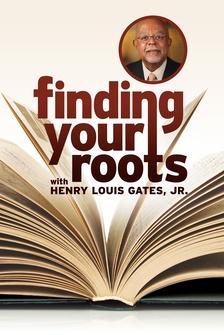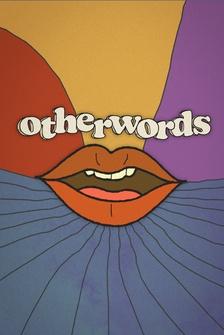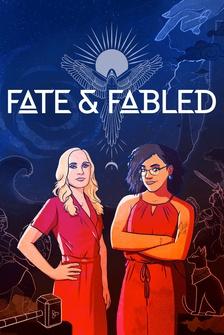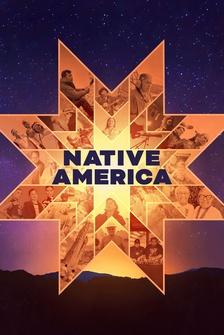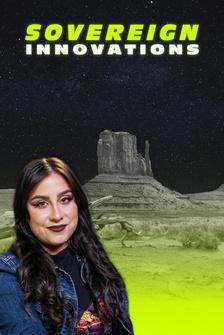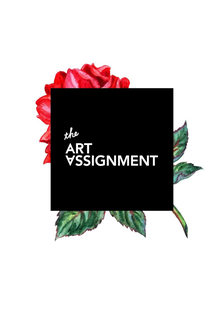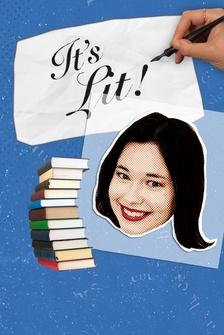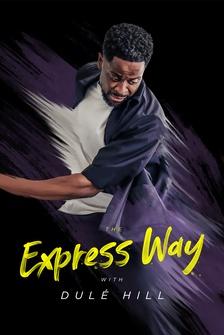[♪♪♪] -♪ Every day every day Every day ♪ ♪ Every day I write the book ♪ [♪♪♪] -Welcome, I'm Rose Martin, and we are Write Around The Corner in Orange, Virginia with Jeannette Walls.
Does that name sound familiar?
Well, you might recognize that from a little New York Times bestseller that was on the list for eight years, or maybe it's the movie.
Of course, it's Glass Castle .
Or, perhaps it's one of her other instant New York Times bestsellers, The Silver Star or Half Broke Horses.
But today, it's all about Hang the Moon.
It's an action-packed novel full of family secrets, power struggles, big money, bootlegging, and scandals.
Sallie Kincaid is the daughter of the biggest man in town.
She's young.
She's feisty.
She refuses to be compromised.
Oh, and she finds herself in charge.
Welcome, Jeannette Walls.
Thanks for joining us.
-Thank you so much for having me.
-And we're so grateful to be here to talk about Hang the Moon , and it's a departure because, you know, you're moving away from the story that was totally non-fiction about your life and your relatives... -Right.
-...and you take us into a wonderful world of Virginia during the 1920s and prohibition.
-You know, I'm somebody who believed the truth had the answers.
You know, my parents were both such fabulous fibbers.
They had a relationship of convenience with the truth.
And from a very young age, I just was fascinated by the news and by encyclopedias and the truth is out there.
And I was a journalist for 30 years.
And so, my first book was a memoir, which you can-- it was all true.
It was certainly a perspective, but it was as close as I could get to the truth as I could.
My next book was about my mother and her mother, and I called it fiction because I don't know how much of it was true.
And my third book Silver Star was-- it was also based on people and things I knew.
And so, Hang the Moon is my first fully fictional book.
And I had always thought of myself-- in fact, I told people I will never write fiction.
I don't make things up.
I have no imagination.
And it was actually on a book tour.
A gentleman in the front row said, "I believe that you have a fabulous imagination, but you're afraid of your own creativity."
And it kind of... -Ooh, yeah.
-It kind of knocked my socks off.
-Yeah.
-It was a game changer for me because I realized the degree to which I associated creativity with lying.
-Right.
Right.
Like, creative means it's not the truth.
-Yeah.
Exactly.
Exactly.
Well, and so... And so, Hang the Moon is very deeply rooted in research.
And I have, literally, hundreds of books that I read that went into this.
And my editor, Nan Graham, bless her heart, she had to pry my fingers off the facts.
There were times when I just said, "But Nan, it really happened."
And she said, "Take it out.
It doesn't matter that it happened.
You have to make things up."
"But that's lying."
So, it was a very gradual move into fiction, and it kind of terrified me at first.
-Your past, you know, it's been well documented, the things that define you as a beautiful woman who writes from her heart, who tells stories that grasp people right where they live.
And I think one of the things that I've admired so much about you is that you come out and say, "Hey, everybody, this world is fantastic."
-It is.
-"My life is fantastic."
-It is.
But let's also be frank, I'm a tough broad.
Okay?
[Rose] That's good.
-I'm, you know, I'm a fighter and a scrapper.
And I like writing about tough people going through tough times.
I love the contradictions of life.
I love the fact that where I live now, you know, one of my neighbors is one of the wealthiest people in the county, and another neighbor doesn't have indoor plumbing.
So, I love the fact that these incredibly different people can coexist.
And people say the truth is stranger than fiction, but I think it's actually more nuanced than fiction.
I think that, you know, people are just a bundle of contradictions.
And living in Virginia where I do, it's a constant inspiration to me.
-Well, and you're an inspiration to us, but your family inspired you also.
-Oh, yeah.
-...because looking at the impact that your mother and father had on you as a young child, but offered you very different gifts and experiences in that.
-Absolutely.
You know, we traveled a lot when I was younger.
We were just-- we were always on the run.
Dad called it "doing the skedaddle", but we were just running away from someone or something.
Cops were chasing us or bill collectors or whoever.
And we settled in a little town in Southern West Virginia when I was 10.
And we had no indoor plumbing.
We had electricity, but we didn't usually pay the bills, so the lights were turned off.
So, you know, the place was wired for electricity, but I grew up reading by candlelight, by kerosene light.
But I believe I had so many gifts.
And some of them, it took me a little while to recognize.
But first of all, I always felt loved.
I always felt valued.
But I was also always reading.
My parents were voracious storytellers, but they were also voracious readers.
And the house was always stacked with books, often library books, which we sometimes even returned, but I'm so grateful to them for that incredible gift.
Like I said, I don't think I recognized it initially.
I assumed everybody grew up that way and that's just not the case.
But in addition to my parents, I'm also so grateful to the many wonderful librarians and teachers in my life.
I'm a big fan of education, and, you know, I think kids are so good at finding a light in their lives.
And ideally, it's somebody in the family, but sometimes it's a neighbor or a minister, often a teacher, or a librarian, but somebody who recognizes this kid is special, and often hands them a book, and... -And I love a few of the stories.
Like, you were named after your dad's favorite teacher.
Right?
-Yes.
Yes.
-...which is wonderful.
And she was also part of the newspaper clubs... -That's right.
-...and actually made sure that kids were not giving you or teachers weren't giving you a hard time when you were going to go to the club.
-A wonderful woman named Jeannette Bivens.
[Rose] Mm-hmm.
-My older sister was on the newspaper, and Mrs. Bivens put me on the newspaper as well.
And, yeah, I was named for her because she'd been a teacher when my father grew up in Welch, West Virginia.
And she had recognized him as somebody who had incredible potential.
So, some of these teachers are these amazing people.
They're saints walking this planet who say, "You know something?
That kid is special."
But, you know, it's not just Mrs. Bivens.
Not long after The Glass Castle was published, I got an an email from a woman saying, "My name is Phyllis Owens.
You probably don't remember me."
She was my ninth-grade English teacher.
-Oh.
-I could never forget her.
And she said, "I'm going to start using The Glass Castle in my courses."
She no longer teaches high school, but she teaches college courses.
She said she was going to teach it to people who want to be, to become teachers to help them understand poverty.
And she said, "I have some questions.
If you could answer them, it would be very useful."
I said, "Well, I'm on my book tour right now, but I'll answer them as soon as I get home."
She said, "They're due this Friday."
And I pulled an all-nighter, and I was using grammar check and spell check and everything.
And Mrs. Owens and I have become friends.
-[Rose] Mm-hmm.
-And she said she realized-- she looked at me one time and saw that my hands were dirty above my wrists.
My arms were dirty.
And she realized, "Oh my gosh, Jeannette's family doesn't have indoor plumbing."
-[Rose] Mm.
-And she said, "This one's going to be okay.
For me to interfere would probably do more damage than good."
So, she said this one has the drive to get out because she was somebody who grew up without indoor plumbing.
[Rose] Mm-hmm.
-And she understood the importance of literacy and the importance of reading and that that, for so many kids, is the way out.
-Well, and the power of words.
-The power of words.
-You and your dad would argue over the dictionaries, dictionary words... -Yes.
-...and actually send notes... -Yes.
-...in about words.
And I thought, "Oh my gosh, yeah."
-Yeah.
My dad was one of those crazy people writing letters to the dictionary editors, taking issue with a definition of a word.
And it's a passion that has stayed with me, this, what is the meaning?
Why does-- where does that word come from?
And in the writing of Hang the Moon , it was just very important because I was constantly referring to the dictionary because authenticity is so important to me.
And so many of the words that we use today were not in use back then.
So, I just-- I was constantly running to the dictionary for the etymology of the word.
Was it being used in this way a hundred years ago?
-See, so you were an early dictionary lover, but also an early lover of Doctor Seuss.
-Oh.
-So, which book was it?
Star Belly Sneetches ?
-Please don't get me started on this... -[Rose] Okay.
-...because I can probably quote the whole thing through.
But, yeah, "The Star-Bell Sneetches had bellies with stars, and the Plain-Belly Sneetches had none upon thars."
Anyway, I know the whole thing... -[Rose] Uh-huh.
-...from beginning to end.
And, you know, I loved not only those, but I cannot remember not knowing how to read.
I can remember being stuck on a few words.
I can remember spelling out a word and asking Mom-- one was "boulevard."
"Mom, what is this word?
What does it mean?"
And she said, "It means street."
And I said, "Why didn't they just use street?"
And she said, "That's a good question.
Let's, you know, let's discuss that."
And so, you know, the whole discussion of words-- and I think that that's one of the beauties of the Internet is that these things are accessible to most people now even if you don't have a house filled with books.
If you have access to a computer and can look up these words, it's all out there.
It's amazing.
-You know, the actual glass castle of, you know... -Yeah.
-...the glass walls and the things didn't get built in the way it was thought about from your father.
-Mm-hmm.
-But in a way through all of your hopes and dreams and the things, you've realized that glass castle, haven't you?
-I absolutely think so.
I think that-- I think The Glass Castle is less about a structure, less about a building, and more about a hope and a belief in the future.
And a belief that even despite what we were going through with our little shack in Southern West Virginia, that we were destined to something better and more beautiful.
And Dad was such a dreamer, and I believe that if you can pass those hopes and dreams onto your child, along with a good education, a love of reading, that the kid can do just about anything.
And I'm so grateful to my parents, and some people are shocked that I'm not angrier with them.
But, you know, both my parents were a little damaged.
And I think part of growing up is understanding, you know, parents are human beings too, and they have their own baggage.
And Mom and Dad, they gave us not only the best that they could, but they gave us some incredible gifts.
Yeah, there were a lot of hard times and a lot of craziness, but they-- first of all, if they hadn't given us that wacky time, I would have never been able to write The Glass Castle .
-[Rose] Mm-hmm.
-So, focus on what-- the gifts.
Focus on what you're given.
You know, we are all storytellers.
Anybody who answers the question, "How is your day?"
is a storyteller.
And we shape our truth by which stories we tell and how we choose to tell them.
So, I could be bitter and angry and upset about the fact that I didn't have nice clothes when I grew up, or I can look at these incredible people who gave me such a unique view on the world and the ability to write about it.
-So, it's some of the things that, obviously, you didn't have growing up... -[Jeannette] Yeah.
-...you've had several other pieces that really formed you into the strong, independent woman, scrappy, as you say, who was bullied growing up, but you can't cross me now because I'm one tough girl.
-You know, I was at a reading one time, and somebody said, "I can't believe you survived everything you did.
It was so horrible.
It was so awful."
And this young woman in the front row raises her hand sort of shyly, and she said, "I'm from Liberia, and she didn't have it so bad."
-[Rose] Oh.
-And there was a little gasp from the audience as though people thought I was going to be insulted that, you know, this is a competition to see who had the worst childhood.
No.
No.
No.
No.
We all have stories, and mine might be a little more dramatic than other people.
But one of the beautiful things about having told my story, the number of people who come up to me and say, "Our stories are different, but we have a lot in common."
And sometimes they were raised in great wealth, but they had an alcoholic father or an uncle who did something inappropriate.
But sometimes, they were raised in shockingly similar circumstances.
And sometimes, they're crying, and they'll say, "I'm so ashamed of this.
I've never told anybody before, but I think you'll understand."
And they'll tell me these amazing stories.
And I think, why would you be ashamed of that story?
That's beautiful, and then I remember, oh yeah, I was ashamed too.
We've all been through something.
And I think what is damaging and dangerous is when you pretend that you didn't have these things.
When you just think-- and you think you're alone and you think nobody will understand.
So, that's why I became such a big fan of storytelling.
And whatever bullying I went through, I bear no ill will.
There's no grudge about that sort of thing.
-[Rose] Right.
-You know, people have tough lives, and we deal with them however we can.
And yeah, people have written me and apologized.
I'm good.
I'm good, really.
-[Rose] Right.
-Life is beautiful.
-Right.
Or people from your past, the one girl that who, like, turned into a nurse from your school.
And so, I'm sure there are people, like, even from your past or maybe their lives are changed because they might be in school now or be in a neighborhood now that they might act a little differently.
-Well... -And isn't that a great message for all of us?
-It's a wonderful message.
If somebody can look back and say, you know, "I wish I hadn't bullied her."
-[Rose] Yeah.
-Don't apologize to me.
Tell your children.
Tell your children, you know, there's a girl in class.
I just always wish I'd been a little bit nicer to her.
-[Rose] Yeah.
-You know, and I-- that's beautiful.
If we can just change the world through openness and empathy and storytelling, you know?
I feel nobody owes me any apologies or anything.
I get it.
Those teen years are tough... -[Rose] Yeah.
-...and you want so desperately to fit in.
And if I'd been a popular kid and somebody like me had come around, I don't know if I would have had the wherewithal to have befriended or defended somebody like me.
-So, when you look to put the thoughts down on paper and-- oh, a ladybug.
-It's a ladybug.
-That was good luck.
That was good luck.
Then we have, you know, the process from what it-- from you writing.
I understand that you like to, you say, just get it out and write and write and write and write and write.
-Yeah.
Yeah.
Write.
Write.
[Rose] Just get that story out for right now.
-Yeah.
I've never had writer's block.
-[Rose] Yeah.
-I just, like, I don't worry about whether it's any good or not.
I just write it.
You just write it out.
And for me, the process of writing is the process of thinking, and I'm very fast but sloppy writer, and I look at it, this really-- this is terrible.
And like on my first version, this is just awful.
Why?
Why?
Why?
Why?
And trying to get a little bit deeper and trying to be a little bit more honest because I have two bad writing default modes, and one is glib.
And I'll just sort of gloss over, everything was fine, blah blah blah blah.
And I look at it, that's not completely honest.
My other bad writing default mode is a sort of highly academic removed.
You know, "I heretofore not consider the plethora of influences."
-[Rose] Yeah.
-And, you know, so you get kind of academic and like, "The situation evolved..." And just trying to-- so that's one of the reasons I wrote The Glass Castle first person present was because I wanted to get back in that time.
This little girl who did not pass judgment on her parents when she was very young, and it changed because, looking back, my parents were kind of-- they were kind of messed up.
And so, when I wrote it as an adult looking back, it was impossible not to sort of pass some kind of judgment.
As a little kid growing up with these parents, I wanted to write what that felt like.
-And you as a strong, young child writing that book, the same thing with Hang The Moon .
So, Sallie Kincaid, she's a young girl who is faced with, you know, some challenges of her own.
And so, let's talk a little bit about this wonderful little girl, this Sallie Kincaid, during Virginia Prohibition, and set up the story for us.
-Well, I'm fascinated by stories of survival.
I'm not that good about writing about existential angst.
I just-- I don't relate to that.
I like tough people during tough times.
And, Sallie Kincaid, she was born into a well-to-do family, and then was exiled from it, and then came back.
So, when she came back, she had this sort of idealized vision of who and what her family was.
She was a tough kid.
She was a tomboy, and she just adored her father.
And so, coming back into this family... -I don't know.
There's a little bit of Jeannette Walls.
-There might be.
-A tomboy, adoring her father...
I don't know.
I'm just getting a little parallel here.
A tough girl.
Yeah.
-There might be.
Yeah.
In fact, when I was struggling with the dialogue for Sallie, my husband and I would act it out, and he would play one of the roles.
He'd play the Duke, her father, or someone like that.
And say, "Don't think about it.
Just say.
Just say it."
And so we'd get the dialogue from there.
The only time it didn't work is if I used mid-century curse words.
So, I had to check that for anachronism, but yeah, yeah, I tapped into the feisty child I was.
But there are so many things different.
I mean, I was not born into the wealth, but I-- Sallie, even though she was born into a well-to-do family, she was exiled into the mountains and to her aunt's.
And I very much wanted Sallie to be aware of both of the worlds.
So, she grew up and was born in-- or she was born into the wealth, but she had a little bit of sympathy for the people who had it tough.
-I love this one quote, "Outlaw, rumrunner, "bootlegger, blockader.
"I don't for one second forget "that what we're doing is illegal, "but legal and illegal and right and wrong "don't always line up.
"Ask a former slave, plenty of them still around.
"Sometimes the so-called law is nothing but the haves telling the have-nots to stay in their place."
-You know, Rose, it was so fascinating researching that period in history when prohibition became the law, and it was the first amendment that cut back on people's rights.
And particularly in this part of the world, people, that's how they made their living, was making liquor.
People up in the mountains had been running-- they brought it over from Scotland, and that's-- Ireland and Scotland, that's how they survived, especially once the chestnut blight wiped out, that was their cash crop.
And all of a sudden, it becomes illegal.
And so, these hardworking, law-abiding folk are outlaws.
And what are the choices, to starve or to become outlaws?
[Rose] So, this book is so fascinating, and there's so many well-developed characters and storylines to where I found myself thinking, "Oh, I really like this one.
Oh, they did not do that.
Oh, you gave me a twist because I did not see that part coming in the book at all."
So, the overarching book is so-- it's so good to be in Virginia Prohibition and takes us into the research of the time.
So, I know, like, when she was in the town hall or when she was running liquor or what they were doing in the storefronts.
Right?
-Thank you.
-And I think that's so important for the reader to know.
-Thank you.
-Because I don't want people to think, "Oh, it's another Glass Castle ."
And it's not.
-No, no, it's not.
I researched the bejesus out of it.
This thing took me seven or eight years.
And I did so many versions.
And I'm a little bit of a research nerd.
And I just-- I fell in love with some of the stories out there, and many of the characters are based on real-life characters.
There actually was a woman rumrunner named Willie Carter Sharp in Franklin County.
-[Rose] Mm-hmm.
-And Sallie is not Willie Carter Sharp, but it was just very important to me to not have something that could have never happened.
Oh, that would have never happened.
A woman would never have headed up, you know, the liquor brigade.
But it did happen.
So, it was just very important to me that this stuff was credible.
So, I wanted historical precedents for many of the things.
But yeah, there are a lot of-- there's a lot of wackiness that was going on.
It was a crazy time.
And people were getting shot at and people were breaking the law.
And in Franklin County, the lawmakers were involved in the moonshining.
So, it just was this crazy, upside-down world where, what is right and what is wrong.
And that was one of Sallie's struggles is-- at the same time that she's trying to figure out who she is, the whole country was having this kind of an identity crisis about trying to figure out, well, what is right and what is wrong.
-[Rose] Right.
-The people who passed prohibition, it was this crazy amalgam of, you know, some were nativists, who were really threatened by the way that the world was changing with these crazy Italian immigrants with their wine and the German immigrants with their beer and the moonshiners.
So, they wanted to bring the world back to the good place that it used to be.
And it was a woman's movement, prohibition.
It was largely funded by, you know, the Women's Temperance Movement.
And they were well-intended people who genuinely believed, "If we can stop people from drinking, then the dads will go back home to their families and crime will essentially disappear, and we can shut down the jails."
I mean, that was fascinating to read that they really believed that crime would stop, and we could take that money that we used to use to lock up the drunks, and we can put it to education.
And the world would be a better place.
Well, it was a complete backfire.
-Well, and you've got some great characters in here who try to do some of these things... -Yeah.
-...paralleling history.
I love the cover with her underneath this cover, like the dress and the shoes and just a little peek of that coming up.
I want everyone to really look at this cover because once you read this book and you go back and you look at this cover, you're going to be like, "Oh, yes.
Oh, yes."
I get-- would you be willing to read something for us?
[Jeannette] I love the cover too.
Thank you.
Thank you.
I love the cover.
I think some people thought it was a little risqué with the legs popping out... -Yeah.
-Like, lighten up, folks.
Yep.
But yes, I'd be delighted to read something.
I really struggled to find passages that won't have... -Anything giving away?
-Yeah.
-Right.
-Right.
Because there's so many... -Yes.
-So, I chose from the prologue.
-That's exactly what I was wondering.
I'm like, oh, you know, the prologue's the only thing that we're not going to let everybody know what's going on.
-So, shall I start?
-Sure.
-"The fastest girl in the world, that's what I'm going to be.
"I decided this morning.
"It was the best kind of morning; "sunny but not too hot.
"White clouds that look like dumplings, "way up in the bright blue sky, "birds chirping away at each other, "and little yellow butterflies dancing around.
"I buttoned up my sailor suit and was buckling my shoes "when the door opened.
"It was my daddy, the Duke.
That's what everyone calls him.
"'I got a surprise for you, whippersnapper,' he said, "'A present.'
'A present?
"But it's not my birthday.'
"'I don't need some special occasion "to give my own daughter a present.
"If I say today is a present-giving day, it is.
"And mark my words, girl, "this present is going to change your life.'
"'What is it?'
"'Why, you little sneak!
"Are you trying to trick me into telling you?'
"The duke was using his pretend-to-be-angry voice "and that made me laugh.
"'Then it wouldn't be a surprise.'
He smiled.
"'Up in the carriage house.
Come with me.'
"If I live to be a hundred years old, "I'll never forget today.
"The duke took my hand in his, "and the two of us walked down the hall "past the parlor where my step-mama Jane "was playing scales on the piano with my half-brother Eddie.
"He loves that piano and didn't even look my way.
"In the kitchen, I told our cook, Old Ada, "where we were going, and she says she loves surprises "and tugged one of my braids, "and then, we went into the backyard.
"When something's good about to happen, "that makes me feel like skipping.
"I don't understand why so many people walk "when they could skip instead, but this morning, "I couldn't bear to let go of the duke's hand.
"So, I behaved myself, for once in my life, "like Jane is all the time telling me to.
"The duke and I walk past the stone wall "we built together for Jane before Eddie was born.
"It's low like a bench, so I can sit on it, "and wide enough for me to run along the top "and then jump as high as I can into the air.
"Behind the wall are Jane's pink and red and white peonies "that look like big scoops of ice cream.
"She's the only one allowed to pick them.
"We headed up the long driveway, under the big poplars, "past our chicken house, and icehouse, "and smoke house, and spring house, "all of them painted white with green tin roofs, "just like the big house, and all of them empty now "because we buy our meat and eggs in town.
"And the iceman brings blocks of ice "for the icebox in the kitchen.
"Still, it's fun to go poking around in them.
"Eddie's only three, five years younger than me.
"But as soon as he gets old enough to really play, "they'll make great cowboy and Indian forts.
"When we about past the paddock, "I gave a great big wave to the carriage horses "who were chewing away on grass "and swatting at the flies with their tails.
"They're getting fat because we don't harness them up much "now that the duke bought himself the Ford, "the first automobile in all of Claiborne County.
"I feel a little sorry for the horses, "but the duke says in a matter of time, "only cowboys and fox hunters and circus riders "will have horses.
"The carriage house at the top of the hill "is also white and green.
"And by the time we got there, I was just about to bust "from wanting to know what my surprise was.
"The duke grabbed ahold of the door handles and said, "'Close your eyes, whippersnapper.'
So, I did.
"I heard that low rumbly sound the big double doors make "when they're sliding apart.
"'Now, open your eyes,' he said.
So, I did.
"That's when I first saw it, a wagon, sitting there, "pretty as you please, on the brick floor, "right between the Ford and the carriage.
"An honest to goodness coaster wagon "with great big red wheels, bigger than dinner plates, "and a shiny black metal pool handle "and smooth wood sides with big black letters that read, "'Defiance Coaster.'
'Is that for me?'
'You bet it is.'"
-Oh, you bet it is.
You bet it is.
And that defiance coaster and everything in that prologue just lends the reader and the viewer into so much richness throughout the entire book.
Jeannette, thank you so much for having us here... -Thank you.
Thank you.
-...for learning about your life and for sharing Hang the Moon with us.
-Thank you.
-I really, really appreciate it.
My special thanks to Jeannette Walls for opening her home here for us and for sharing Hang the Moon and her other story with us, of course, The Glass Castle .
Make sure to tell your friends about us and check out our extended interview online.
I'm Rose Martin, and I will see you next time Write Around The Corner .
-♪ Every day every day Ev ery day every day every day ♪ ♪ Every day I write the book ♪ ♪ Every day every day Every day ♪ ♪ Every day I write the book ♪ ♪ Every day every day Every day ♪ ♪ Every day I write the book ♪

